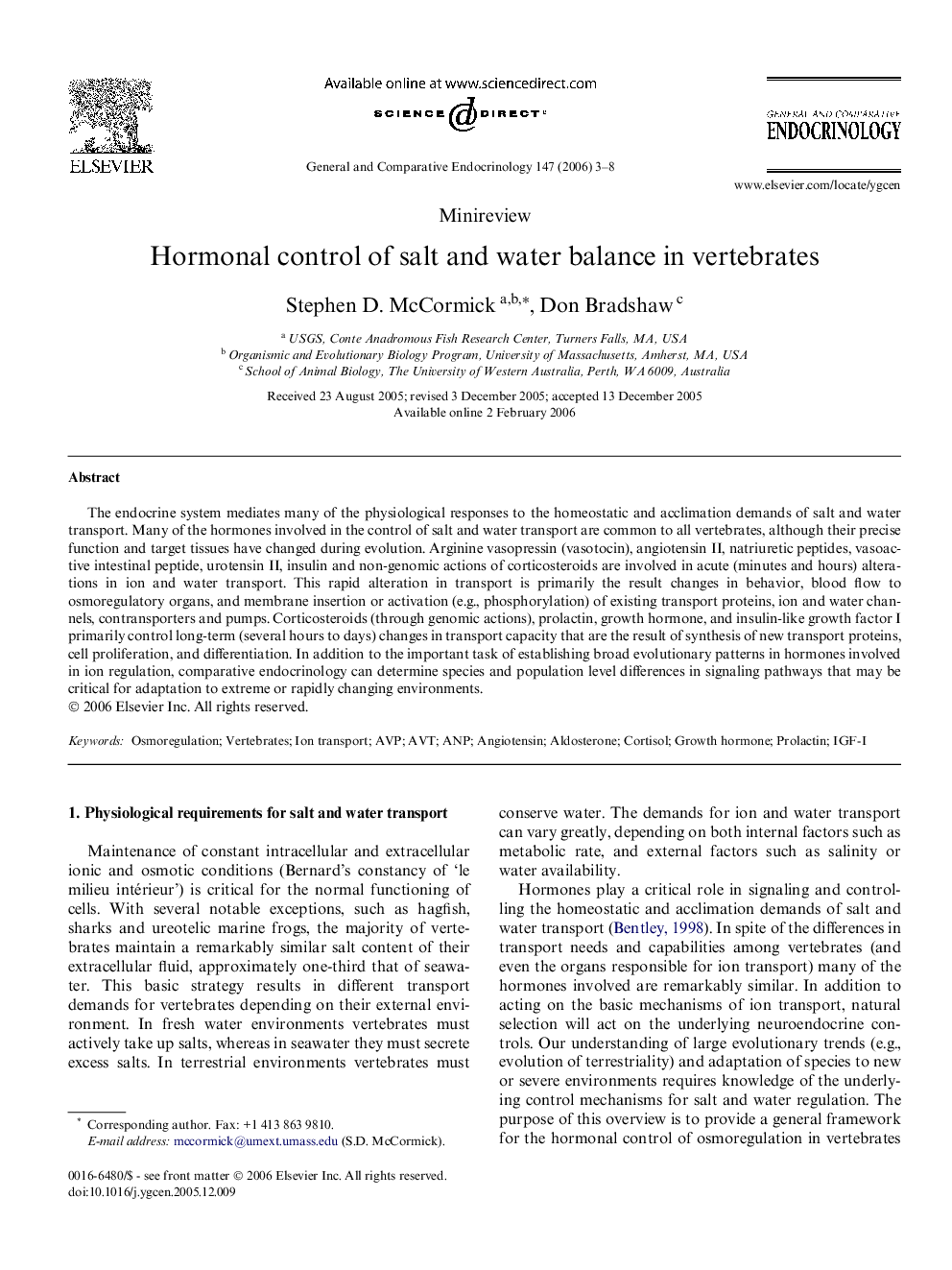| کد مقاله | کد نشریه | سال انتشار | مقاله انگلیسی | نسخه تمام متن |
|---|---|---|---|---|
| 2802330 | 1156198 | 2006 | 6 صفحه PDF | دانلود رایگان |

The endocrine system mediates many of the physiological responses to the homeostatic and acclimation demands of salt and water transport. Many of the hormones involved in the control of salt and water transport are common to all vertebrates, although their precise function and target tissues have changed during evolution. Arginine vasopressin (vasotocin), angiotensin II, natriuretic peptides, vasoactive intestinal peptide, urotensin II, insulin and non-genomic actions of corticosteroids are involved in acute (minutes and hours) alterations in ion and water transport. This rapid alteration in transport is primarily the result changes in behavior, blood flow to osmoregulatory organs, and membrane insertion or activation (e.g., phosphorylation) of existing transport proteins, ion and water channels, contransporters and pumps. Corticosteroids (through genomic actions), prolactin, growth hormone, and insulin-like growth factor I primarily control long-term (several hours to days) changes in transport capacity that are the result of synthesis of new transport proteins, cell proliferation, and differentiation. In addition to the important task of establishing broad evolutionary patterns in hormones involved in ion regulation, comparative endocrinology can determine species and population level differences in signaling pathways that may be critical for adaptation to extreme or rapidly changing environments.
Journal: General and Comparative Endocrinology - Volume 147, Issue 1, 15 May 2006, Pages 3–8